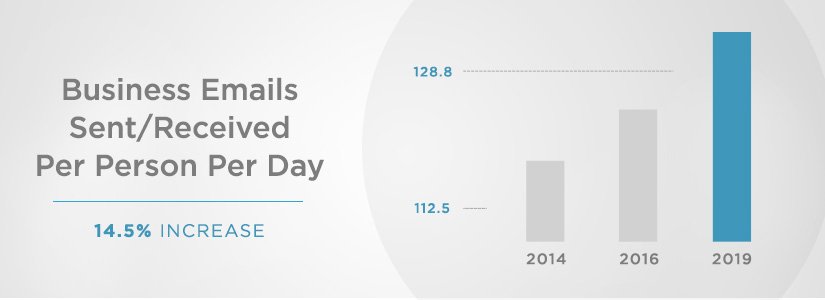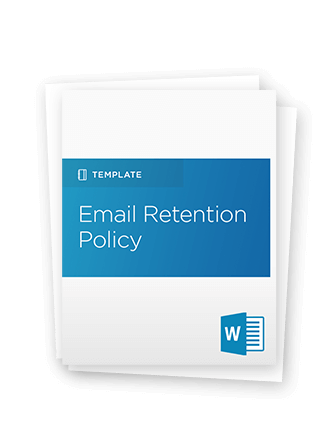How to Handle an eDiscovery Investigation of Employee Misconduct

Have you or someone within your organization ever had to investigate an allegation of employee misconduct? If not, do you have any idea how you would undertake such an investigation? Do you have any clue as to how you’d seek out the information needed to determine whether or not any wrongdoing took place?
In today’s digital age, the answer is quite complicated — especially when comparing a civil situation versus a potential criminal act. In a non-criminal situation, where the investigation is taking place internally, the search for evidence would most likely begin with interviewing employees involved and asking them about the allegations. However, there’s also an entire digital component to finding the evidence you need to back up or refute whatever claims are being made. This is called eDiscovery.
If you would like to learn how to choose the right email archiving solution, you can download our eBook.
A recent and oft-scrutinized federal investigation into a certain presidential candidate’s alleged misconduct involving her questionable use of an unauthorized email server serves as a high-profile example of the time and money that can go into these types of eDiscovery investigations.
A High-Profile eDiscovery Investigation
According to various media reports, the yearlong investigation involved hours upon hours of research and digging into the thousands upon thousands of emails in order to determine what type of data was transferred back and forth from the then Secretary of State’s email server and her secure state-run email server.
The investigation determined that of the 30,000 emails returned to the State Department, 110 emails in 52 conversation chains were determined to contain classified information at the time they were sent. Eight of the conversation chains contained information that was top secret at the time, 36 chains contained secret information at the time, and eight contained confidential information, according to the investigation. Several thousand other work-related emails were not among those returned to the government and appeared to have been deleted.
While the FBI investigation concluded that no illegal activity took place, FBI Director James Comey was critical of the candidate’s action involving her email — saying she and her colleagues were “extremely careless” in their handling of the very sensitive and highly classified information. The investigation, which may or may not be 100% complete, is rumored to have cost millions.
Can You Afford an eDiscovery Investigation?
Such high-profile cases show that eDiscovery investigations can be complicated, convoluted and costly — which for the federal government is one thing, but for a small- to medium-sized business is a whole other can of worms.
With email becoming the preferred choice of communication for businesses today, not to mention the growing popularity of social messaging, the trail of evidence one needs to follow in an eDiscovery investigation involving employee misconduct has gotten much harder to navigate.
This can prove costly in terms of time spent, but also because of the impact it can have on morale should word of such an investigation begin to spread around the office. An eDiscovery investigation of employee misconduct should be kept private. However, without the proper eDiscovery tools and processes in place, keeping your investigation confidential can be challenging.
How to Properly Conduct an eDiscovery Investigation of Employee Misconduct
Without the necessary tools in place, an eDiscovery investigation into an employee’s suspected misconduct requires direct access to their computers — something that is difficult to explain to the employee in question and could lead to the potential deletion of email evidence.
While not necessarily covert, eDiscovery investigations involving an email archiving solution can be concealed so as not to draw the attention of an employee who is suspected of some malfeasance. Organizations with this type of tool are in a much better position to conduct eDiscovery investigations. Here’s why:
- Undetected Oversight — An eDiscovery investigation of employee misconduct can remain under the radar when an email archiving solution is in place because it allows you access to email evidence without needing an employee’s computer or device.
- Email Retrieval Capabilities — An email archiving solution keeps a copy of every email that comes through a server, meaning the potential evidence is preserved even well after an employee has deleted it from his or her account.
- Peace of Mind — Having an archive in place gives you peace of mind knowing that you can efficiently and discretely conduct the search across all platforms and devices from a single location.
- Attachment Archiving Capabilities — It’s not just the content of the email that gets archived, it’s also any and all attachments sent or received.
And it’s not just email that you have to worry about either. Social messaging platforms could also be a source of evidence in an eDiscovery investigation. Similar to an email archiving solution, there is also a way to monitor your employees’ social media activity on behalf of your business.
Benefits of a Social Media Archiver
A social media archiver is not for surveillance of personal accounts of your employees and all that they do in and out of work, rather it is assurance that accounts associated with your business are acting appropriately.
For example, if an employee goes on a “Twitter rant” regarding your company and uses the company’s Twitter handle and/or a hashtag with your company’s name involved, then that activity could be detected with a social media archiver — even after the regret kicks in and it’s deleted. The same could be said for a student who leaves a virtual bomb threat on a school’s Facebook page and deletes it.
Employing an archiving solution for both email and social media can help your company prove alleged employee misconduct — or as is also very common — to disprove allegations.
Email/Social Archiving Can Be a Double-Edged Sword
Just as an email or social archiving solution can be used to “convict” a person, it can also be used to exonerate them. After all, it’s not rare for allegations of employee misconduct to arise as a result of accusations from a disgruntled employee.
A great example is an employee filing a wrongful termination lawsuit who then creates a fake email and prints it out in hopes of representing it as official evidence. An email archiver could help you refute such a claim by proving that no such email was ever sent or received by the employee in question.
Is Your Organization Ready for an Email/Social Media Archiver?
At the end of the day you have nothing to worry about provided that your employees are doing the right things and following the rules. An archiving solution is an effective and trustworthy tool that is always there when you need it. Not only that, but an archiver allows your organization the flexibility to conduct an investigation in many different ways — whether you’re looking at one employee or an entire department.
Intradyn offers reliable email archiving and eDiscovery solutions for any size company. For more information, please contact us.

